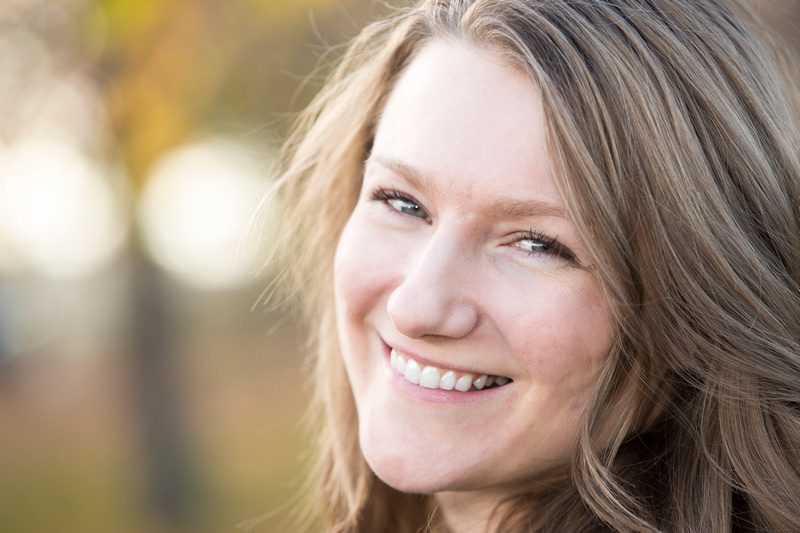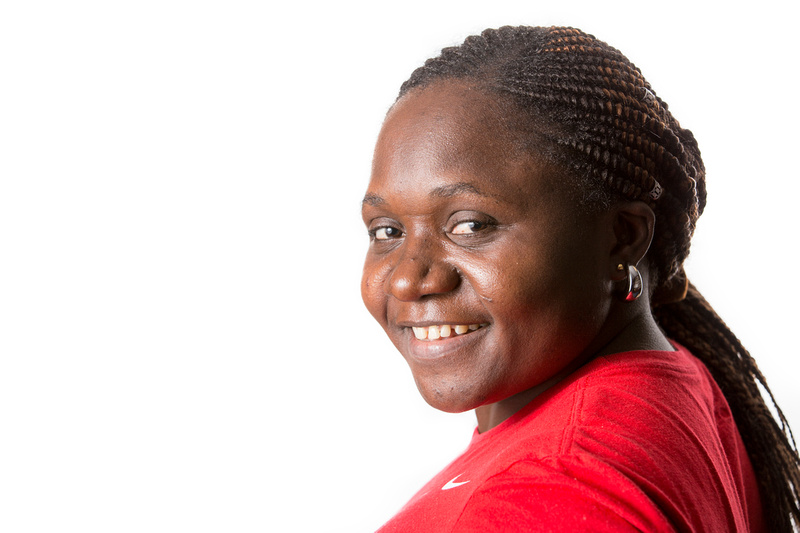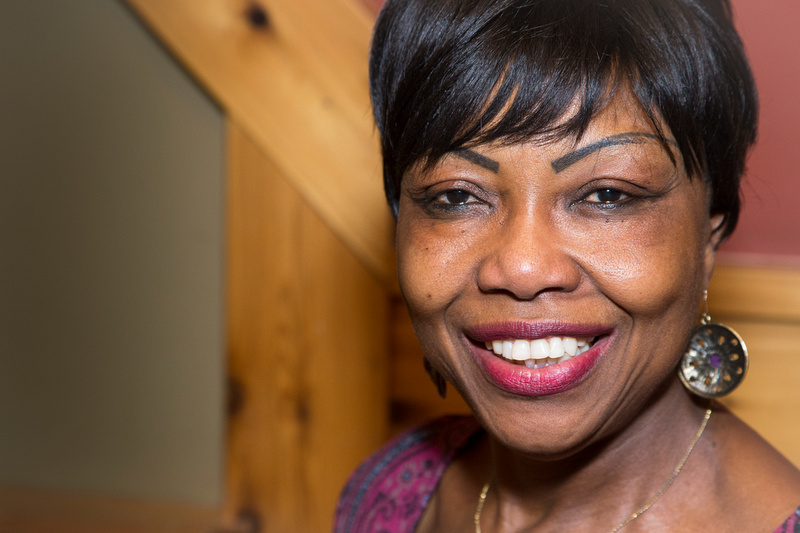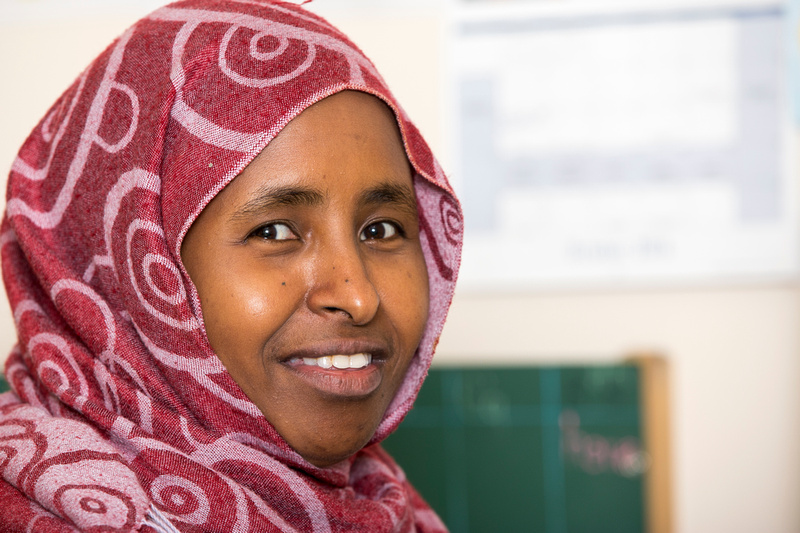Back to blogging for 2018I've been thinking about making a return to blogging for quite a while now. I had my fifteen minutes of blogging fame a number of years ago when I was interviewed for an article in the Washington Post titled, "Cyber Savvy Pastors." At that time I was writing several posts a week on the pertinent issues of the day and often deliberately trying to push people's buttons in an attempt to think through issues from a biblical/theological perspective. I retired that blog about six years ago and have been largely silent since then. It is not an accident that this blog is tied to my photography website. They (whoever "they" are) say that photographers should have a blog so here's my photography blog on my photography website. If you're looking for this to be a blog discussing the technical details of the images or a storied account of photo shoots then you may be disappointed. As a pastor, who believes that God is active in all areas of our lives, it is my intention to use this photography blog to speak into the heart of the human condition from a Christian theological perspective while illustrating the conversation with the images I shoot. There are already seven posts here on this page. They are from my series, "Created in God's image: Portrait of an immigrant" and reflect the reality that all people bear the image of God and have a story to tell that is worth listening to. My next post will be focused on an image I shot last February and will focus on the brokenness of our humanity. Portrait of an Immigrant: Anna
Anna is a Russian immigrant. After several years of waiting Anna’s family emigrated to the United States in 1996. Anna, the second of three children, was twelve years old when her family arrived in Illinois. She said, “It was hard, but at that age you make friends fast.” She remembers the move being more challenging for her older sister who was already a teenager at the time. Born in St. Petersburg, Russia, Anna said she enjoyed a “happy childhood.” She played with her friends and attended the Russian Baptist church without any concerns of persecution. She was educated at the local public school; she also attended a music and an art school. It was at art school that Anna began to find the focus and passion for her career. Anna’s family moved to Minnesota. While attending high school she began working for a photo studio where she learned the art of portrait photography, eventually becoming a trainer for other photographers. Anna continued her education at the University of Minnesota where she focused her study on art. It was here that Anna would refine the artistic vision that brings to her photography. Reflecting on her life in America, Anna says she loves the U.S.A. with its respect for other cultures and religious freedom. At the same time she values her roots and heritage as a Russian immigrant and, like many first generation immigrants, feels a there is a small disconnect in her life that others cannot relate to her childhood. Anna has found her niche in wedding and portrait photography preferring to shoot with a medium format, film camera. This allows her to create a look and feel that is slowly disappearing in the world of digital photography. She notes how she is, “Passionate about what I do,” and “enjoys capturing emotions.” This is evident in the beauty of her art, which can be viewed at www.annagrinetsphotography.com. It is also apparent in the way she comes alive when sharing about her art. Anna believes there is joy to be found in “letting your creativity out.” Viewing her art as a means of, “helping people,” she values the importance of connecting with and getting to know her clients. She hopes that through her interactions with them they will, “see the love of God through of me.” Aesthetics and beauty are important elements in finding true enjoyment and pleasure in life. Through her work, Anna is able to bring joy and pleasure to the world. Portrait of an Immigrant: Jenipa
Jenipa is an immigrant from Cameroon. She was raised in a rural area as the second of six surviving children born to her mother. As a teenager Jenipa moved to the city and lived with her brother’s mother-in-law while she obtained her High School education. After graduation she began working as a housekeeper making about $60 a month. That same year her brother moved to the United States. It was never Jenipa’s plan to leave Cameroon but after her brother’s move she put her name into the lottery for admission to the U.S.A.. A year later, in 2010, her name was drawn. She was now eligible to become a U.S. resident. In June of 2010 Jenipa arrived in America. Jenipa began working in a group home and found that she cared deeply for the needs of others. In 2011 she graduated with her associates degree from Century College before completing her Bachelor’s degree in Social Work at St. Scholastica. Following the completion of her social work degree Jenipa continued her work in group homes now as contract case manager. She currently carries a caseload of about forty group home clients with another twenty-five vulnerable adults who, at this time, don’t qualify to live in a group home. Making a life for herself in America hasn’t always been easy for Jenipa. She hasn’t been back to Cameroon since she arrived in the United States and openly shares that she’s, “missing home so much.” As the mother of a sixteen month old son she longs for her own mother and siblings back in Cameroon to be able to meet him. He is the only grandson in the family. With her younger siblings back in Cameroon Jenipa, like so many immigrants, has made it a point to send financial help back to her family in order to pay for the education of her siblings. She has a passion for education and is hopeful that it will be a way for her siblings to find access to opportunities that would not otherwise be open to them. She says she tells them, “If I’m sending you money to go to school you’d better be working hard. If you pull your pants down and sit on the street I will not pay.” As a result of Jenipa’s generosity two of her siblings are currently working on their university degrees. In the villages of Cameroon the women work very hard. They are the ones who provide for the family. Jenipa brings that passion and drive for success to her life in the United States as she provides for her family both here and back home. Portrait of an Immigrant: Alice
Alice is an immigrant from Sierra Leone. Raised in a poverty, Alice’s family moved to Monrovia, Liberia when she was sixteen in an attempt to find a better life. It was here, at the age of seventeen, that she married her first husband. After almost losing her life in childbirth, Alice developed a lifelong passion to help young pregnant women and completed her training as a midwife. Alice struggled through thirteen years of an abusive marriage until she finally found the courage to walk away from the relationship. Alice married a second time. Albert was a senior government official, who would serve as Liberia’s Ambassador to Sierra Leone. As the civil war continued in Liberia the government fell and Albert was removed from his post as Ambassador. As a prominent leader of the opposition, Albert was assassinated on the morning of May 1, 1992. Fearing the very real possibility that her family might targeted next, Alice sought asylum in the U.S.A.. She approached the United Nations and in December, 1993 she landed in Philadelphia. Alice, now a refugee, arrived in America with her children and $20 in her pocket. Without any sense of bitterness, Alice explained, “You never know when humbling times will come.” At first the family survived on welfare and food stamps. “No one showed us anything,” remembers Alice, they were completely on their own. They had, “no chair, no table, only immediate needs. … No money for diapers, no telephone, they said it was luxury.” Alice notes, “There were challenges doing this, there were bad moments,” but then adds that, “God is so good, I’m sorry for grumbling.” Within a year Alice trained as a nursing assistant and began working in group homes. Just as Alice had cared for others in Africa she continued to do so in the United States. After five years in Philadelphia Alice moved to Minnesota where she studied to become an LPN (licensed practical nurse). The week of graduation in 2004 tragedy struck her life once again when her sister died unexpectedly from a brain aneurysm. That summer Alice made her first trip back to Sierra Leone to bury her sister and be with her mother. Alice’s compassion, drive and focus has remained strong, “All along my dream was to help young women and children.” In 2011 Alice founded Rural Health Care Initiative with a specific focus of reducing maternal and infant mortality rates in Sierra Leone. Alice explains that girls, “get married so early, sixteen or seventeen, and face lots of complications.” A key component of the work of RHCI is the construction of a birth waiting home, a place close to the health care facilities where pregnant women can spend the last few weeks of their pregnancy so they are spared the often long and difficult journey to the clinic after labor begins. Alice has embraced all that life has thrown at her and continues to give of herself to help others. The construction of the first birth waiting home is well under way and lives are being saved because of Alice’s vision. She is, “so grateful to God that it’s coming to pass.” Portrait of an Immigrant: Sahro
Sahro is a Somali immigrant. Sahro grew up in Mogadishu where her father worked in the import/export industry and her mother was a supervisor in an Italian owned factory. As a child Sahro watched as her father was arrested for his political activism. Following his release she witnessed the taunting he received from the authorities. In 1991, civil war broke out in Somalia. As inquisitive young people, Sahro and her friends had to see for themselves the damage caused by the fighting. Sahro recounts the sound and sight of the bombs falling on the city as being eerily similar to the images we see on TV from Syria today. It was a devastating time, “most of my family never survived the war.” In 1992, Sahro and some family members abandoned their home in Mogadishu and went to a refugee camp outside of Nairobi, Kenya. They were displaced people with nowhere to call home. A year later, Sahro, along with her mother, and some of her siblings and cousins were, “very lucky to get sponsored.” So in November, 1993 they arrived in St. Louis under refugee status. It was the beginning of a new life, in a new culture. Tragically Sahro’s father wasn’t part of the group and within a year he died from a brain tumor. Upon arrival in the United States Sahro had three goals, “get a job, go to school and help people back home.” Sahro accomplished this and more. In 1995 Sahro was married and has five children. Her oldest son is in college studying and playing football for a division two school while her youngest attends a local elementary school. Tending to the needs of her family Sahro also began to pursue studies in nursing but shifted her focus and graduated college with a degree in business and accounting. Sahro’s career and life are devoted to advocacy. When working as a security guard she was the person to walk other women to their vehicles, ensuring their safety. After moving to Minnesota Sahro took a job in community outreach, teaching workshops on medical and mental health issues for the Somali and African American community. Today she continues her advocacy work in the local school district where she serves as the Somali Cultural Liaison in a school that is approximately one third Somali, one third hispanic and one third caucasian. “It’s challenging,” Sahro explains when talking about what it’s like to live as a Muslim woman in America. “Before 9/11 we didn’t see it as a problem. … After 9/11 we were the outsiders.” As a citizen of the United States she experienced a lot of name calling, even being called a “terrorist” in front of her young children, “just because I wear a headscarf.” She would note that this is “exactly what ISIS wants.” Before adding, “I don’t think ISIS knows the religion!” Sahro is a strong, courageous, advocate for herself and others. She wants us to understand that “we’re all the same, same wants, same needs. … We want our kids to go to college, graduate, be successful, find the right way. We want our kids to be safe and not hang with the wrong people.” |





